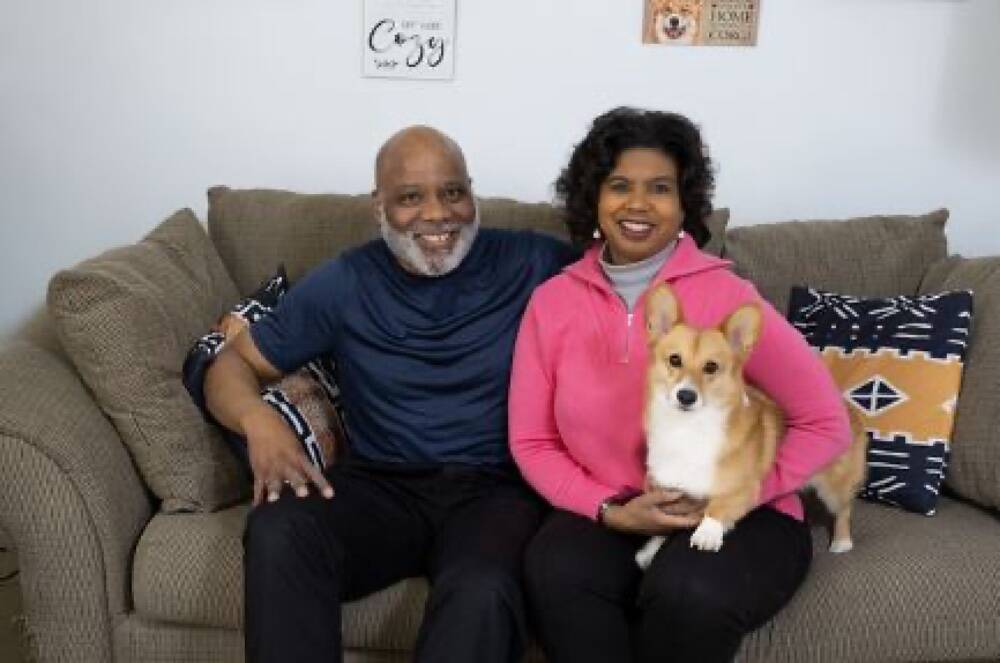Advertisement
Commentary
My neighbors didn’t speak to me — until we got a corgi, ‘the queen’s dog’

Upon the anniversary of the death of Queen Elizabeth II, I’ve been reflecting on my complicated feelings about her and what she represented. At one time the British Empire controlled countries on every continent except for Antarctica, and when those countries rose up and revolted, they were dealt with in unbelievably cruel ways. Britain’s involvement in the slave trade was responsible for transporting millions of enslaved Africans to the American colonies, a system that forced my paternal great-great-grandparents to work on a Virginia tobacco plantation in inhumane conditions and watch each of their eight children sold off.
One of those children was my great-grandfather, Franklin Braxton. I am pained every time I read the passage in our family history, documented by a second cousin, in which he states that he didn’t know his exact birthplace, was sold three times, and blindfolded each time so that he wouldn’t know where he was being taken.
I can’t relate to the reverence many people have for the royals. If the United Kingdom decided to abolish the monarchy, it wouldn’t bother me at all. Yet, as much as I’ve tried to fight it, my heart has begun to soften toward Queen Elizabeth II this past year, in a way I never expected. I can trace it back to a decision my husband, Alex, and I made during the pandemic. You see, ironically, she played a role in easing racial tensions in our all-white — with the exception of Alex and me — condo community. Well, the queen and Regina, our Pembroke Welsh corgi.
For years, Alex and I had wanted a dog, but we both had office jobs too far away for us to come home during the day to care for the animal, and my career required quite a bit of travel. However, in early 2020, budget cuts eliminated my position. Around the same time, Alex lost his job. Then the pandemic shutdown happened. The ensuing depression we felt as we looked for work was compounded by the imposed isolation. When we revisited the idea of getting a dog, Alex and I did research on more than 50 breeds. We wanted a dog that would be affectionate and comforting, and also small enough to not take up a lot of space in our 840 square foot condo.
The American Kennel Club described the corgi as an agreeable house dog that is lively, affectionate and companionable without being needy, and short in stature at 10 to 12 inches tall and weighing no more than 24 to 30 pounds. There was a passing reference to the breed being Queen Elizabeth II's dog, something I hadn’t known, and didn’t think too much about.
What I didn’t expect was that — within days of our eight-week-old corgi, Regina, joining our household — I'd notice a difference in our condo community. Neighbors who typically walked by me without making eye contact or gave a closed-mouthed smile when I’d say “hello,” or said nothing at all, as if I wasn’t even there, were now starting conversations with me.
I sensed an ease among my white neighbors that wasn’t there before, at least on the topic of Regina.
“That’s a corgi,” they’d say in the parking lot as I tried to teach Regina to walk on a leash. “That’s the queen’s dog.” I heard the reference to the queen’s dog over and over as neighbors engaged me in conversation. I’d had no idea of the queen’s love for corgis, or that she’d had more than 30 during her reign.
I realize that in general, pets can be the catalyst to conversation among strangers. But this was different. I sensed an ease among my white neighbors that wasn’t there before, at least on the topic of Regina. That was the extent of the conversation. But it was something.
When I pointed it out to Alex, he said, “They see us walking the dog, they see us caring for the dog, brushing her, scooping up after her. They see us as caring people, not predators.” Before we got Regina, he’d made a habit of lingering in his car when he got home from work to avoid walking behind white female neighbors because of instances in which they’d quicken their step if they saw him.
In his essay, “Just Walk On By: Black Men and Public Space,” which first appeared in Ms. Magazine in 1986, journalist Brent Staples writes about being a graduate student at the University of Chicago and discovering that by merely walking down the street, white individuals, particularly women, became uncomfortable — crossing the street to get away from him, holding their purses. He described whistling Vivaldi, Beethoven and other classical composers as a tension-reducing measure. And giving nervous people on subway platforms a wide berth, and allowing building lobbies to clear before entering if people seem skittish.
[I]t shouldn’t take having the queen’s dog -- or any dog, for that matter -- to be perceived as visible or harmless..."
Regina is affectionate and a great companion, and her idiosyncrasies make us laugh. When we give her a dog biscuit, she cradles it in her mouth and runs to her special spot in the living room to enjoy it, looking back at us as she runs to make sure we’re not going to take it away. And, before I had a chance to recline on it, she claimed my new upholstered chaise lounge as hers, spreading out like a sunbather at the beach. The first time I relaxed on it she took umbrage. She stared me down, barked and then leaped onto my lap to let me know that I was trespassing. We didn’t anticipate her also having the power to thaw relations with our neighbors.
But it shouldn’t take having the queen’s dog — or any dog, for that matter — to be perceived as visible or harmless, for them to feel comfortable and safe around Black people. We continue to carry the weight of living while Black, feared and avoided while others see us through myths and stereotypes. It’s unfair and exhausting.
Alex’s remark reminded me of a conversation I overheard at a social gathering not long after Trayvon Martin was killed. An African American mother was saying that she’d recently moved to a predominately white neighborhood and, out of concern for her teenage son’s safety, took him to each house on the block and introduced him to the neighbors saying, “This is my son. We live in that house over there (pointing at the house), please do not harm him.”
She added that in response, some of the neighbors stood in their doorways with their mouths open, speechless. One of the other women who was part of the conversation told her she had done the right thing and gave her a suggestion designed to increase the son’s level of safety. “Get him a dog,” she said.
When we got Regina, that notion never crossed our minds. But it certainly makes sense to me now.
